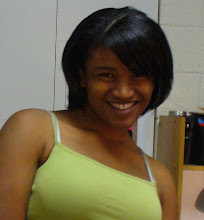For a couple of classes, both in English 600 and 501 (they so go together) we have been discussing the issue of interpretation vs. what the author was thinking when they wrote this. Richard Leo Enos in "Recovering the Lost Art of Researching the History of Rhetoric" states his opinion on this issue: "I am not against criticism; I am not opposed to advancing warranted interpretation; I am not opposed to self-reflection on our methods. I feel that these enterprises are valuable and deserve their place in our field. What I am concerned about is these enterprises operating independently from basic research and existing as ends in themselves. Our first and necessary obligation is to provide new information, new material evidence, new data" (12). Here he is saying that we should not put or emphasis on previous research and interpretation, but come up with our own thoughts and ways of thinking based on the "basic research" or original ideas. He is not devaluing the use of secondary research, but encouraging scholars to dig deeper into the topic to uncover the original. In class we also discussed the use of interpretation versus the primary source of information, and also came up with arguments for both. Of course it is not always easy to come up with a basic source, and almost always have to come up with an interpretation. Also, when doing research it is easier to find second or third party sources that will lead to a more reliable primary source of information. There's also another reason to rely on secondary sources that Jean Dietz Moss explains.
In "Rhetoric and Praxis"Moss talks about interviews in which contemporary fiction authors talk around the question of how they come up with their work, but never really answer the question. He states: "One suspects that novelists are reluctant to give out the secrets of their craft lest other writers appropriate those secrets and become serious rivals. The truth of the matter is more likely to be that most of them have never been introspective enough about the process of their craft to discover how they go about doing what they can do superlatively well" (44). I talked about this in the 600 class. Maybe the authors want people to think that they are smarter than they really are. We analyse every little bit of an author's work, who may or may not be brilliant. Perhaps the reader will get more out of the work if nothing is said about it than if we know exactly what the author was thinking. And why can this not be true for academic authors and scholars as well. For all we know they probably just sat down one drunken night and started ranting about something that has been on their mind, and now we treasure their words as Truth and history.
Subscribe to:
Post Comments (Atom)

This comment has been removed by the author.
ReplyDeleteI agree that there are major difficulties sometimes in tracking down primary sources for research. Certainly when dealing with ancient topics and periods or cultures where the oral tradition was dominant. I don't really know where a scholar would begin research on many such situations. The time and money involved is most likely prohibitive and why more modern scholars don't do it. We have access to more information today, but verifying the accuracy of sources can be challenging.
ReplyDeleteBut I don't agree that we shouldn't seek out primary (or even secondary) sources because artists' works might have more meaning without explanation. I think it can be thought-provoking to read a work without prior knowledge, but further research can only enhance understanding. And if original theories are debunked based on that research, that's not necessarily a bad thing.